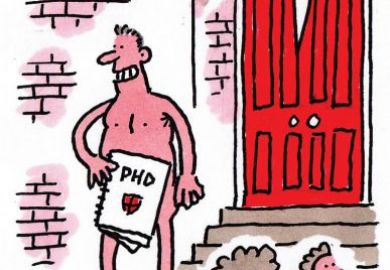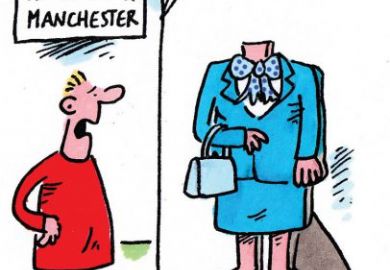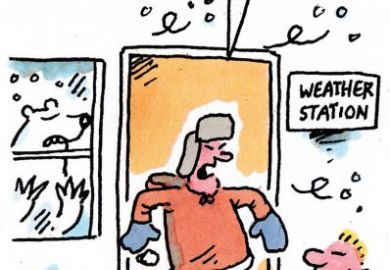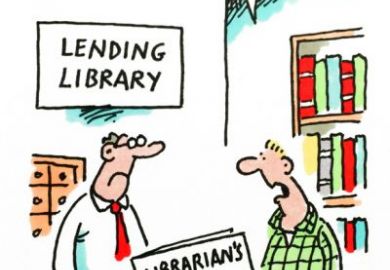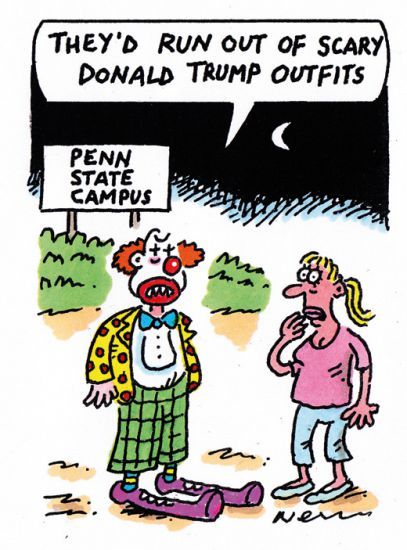
“Uneducated people voted to leave the EU, suggests Jo Johnson”, ran a Daily Telegraph headline on 4 October. The newspaper put its own twist on comments made by the universities and science minister during a fringe event at the Conservative Party conference in Birmingham. “There was a correlation between levels of university attendance and a propensity to vote Brexit,” he told the event. This “means there’s a huge opportunity for universities to play…in widening participation and ensuring that more people, particularly from disadvantaged background[s], get a chance to go to university and share in the benefits that higher education can bring”, he added. Mr Johnson wore a dejected expression at the event. Whether it was the Brexit vote, the dramatic exits of his political kin David Cameron and George Osborne, or the foreknowledge that the home secretary was about to make a speech pledging to cut overseas student flows to the UK, the Remain-supporting advocate of international student recruitment had a few reasons to be downcast. The Telegraph headline may have added to a long list.
A tweet by a Danish academic at the London School of Economics that suggested that non-UK scholars were being stopped from advising the government on Brexit sparked a media frenzy this week. Sara Hagemann, assistant professor in the LSE’s European Institute and an authority on the European Union, tweeted on 6 October that “UK gov[ernmen]t previously sought work & advice from best experts. Just told I & many colleagues no longer qualify as not UK citizens.” A Foreign and Commonwealth Office spokesman insisted that it would “continue to take advice from the best and brightest minds, regardless of nationality”, adding that “security clearance” of some academics may be an issue depending on the nature of the work. It may be a case of crossed wires, but ministers and Whitehall mandarins will surely need all the help that they can get from academia when the arduous process of Brexit truly begins in March.
Video footage showed a “mass panic” at Pennsylvania State University over the supposed appearance of clowns on campus. This is not an unflattering reference to university management, but the latest by-product of the trend whereby individuals dress up as sinister-looking clowns in an attempt to scare people. According to the Daily Mail, one student tweeted: “Three Clowns spotted at PSU allegedly. So naturally 6,000 kids mob the streets to hunt it down. I love Penn State.” The newspaper said that some of the students were armed with lacrosse and hockey sticks, baseball bats and other weapons. Whether bearing arms in the streets to counter things that scare them, or taking to safe spaces to avoid them, US college students can’t win in the media at the moment.
University Challenge contestants are not always the intellectual titans that they appear to be on television, the show’s host, Jeremy Paxman, has revealed. Giving away one of the BBC Two show’s biggest secrets, the veteran broadcaster told the Henley Literary Festival that the programme is sometimes edited to hide the fact that contestants have answered a series of starter questions incorrectly, the Huffington Post reported on 4 October. “It doesn’t happen very often, [but] you might get a run of unanswered starter questions, [so] they all get edited out,” said Paxman. The Beeb was quick to reassure viewers that this wasn’t another case of “BBC fakery”, saying “minor edits...always accurately and fairly represent each team’s performance”. Perhaps realising the inadvertent damage done to legends of the show, the BBC added that “viewers should not be in any doubt that UC contestants are the cream of the TV quiz crop”.
A rapper’s long-awaited visit to a university that shares his name did not go exactly to plan, The Guardian reported on 6 October. Decked in gear from Drake University, the multimillion-selling Canadian rapper known as Drake made a late-night appearance at the Iowa campus having played a nearby gig, the paper said. But the 29-year-old star ended up having to knock on doors to find any student fans, who were, unsurprisingly, all asleep during his 2.30am visit. “Kappa Kappa Gamma I’m outside your sorority house right now and you’re all asleep,” he posted on Instagram – giving a rather lacklustre conclusion to the #BringDraketoDrake social media campaign run by students. The trip was not a complete disaster, however, with a picture of Drake on top of the university sign receiving 600,000 likes.
Register to continue
Why register?
- Registration is free and only takes a moment
- Once registered, you can read 3 articles a month
- Sign up for our newsletter
Subscribe
Or subscribe for unlimited access to:
- Unlimited access to news, views, insights & reviews
- Digital editions
- Digital access to THE’s university and college rankings analysis
Already registered or a current subscriber?
